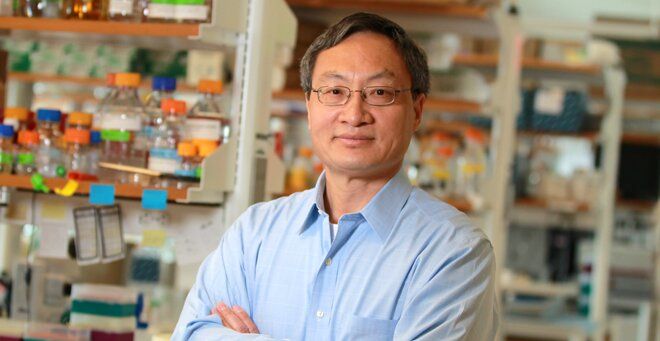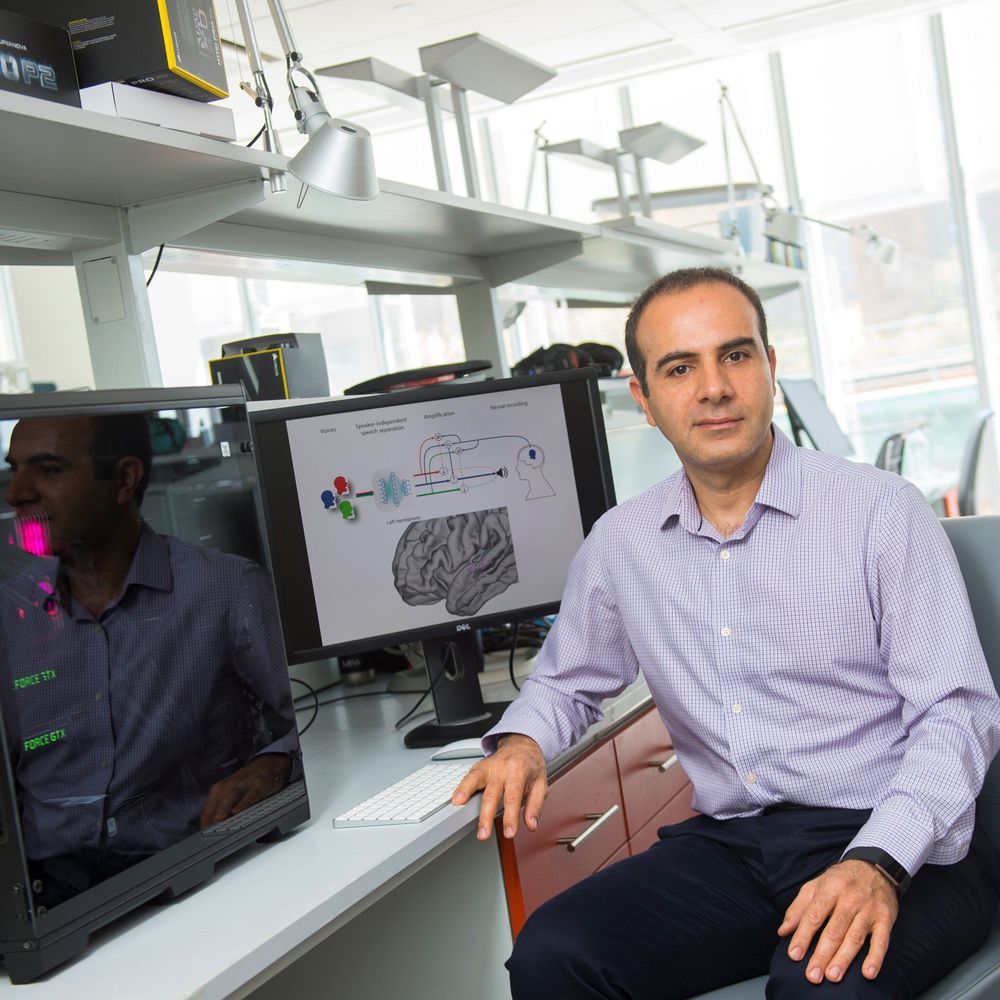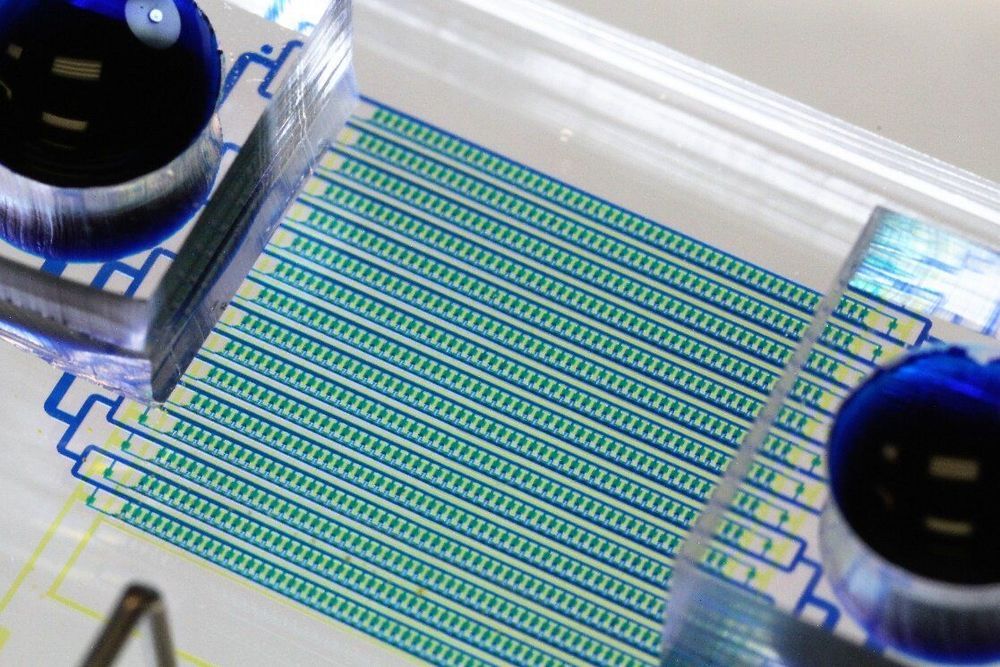Page 8839
May 15, 2019
Ask Anything: Could You Build A Spaceship Out Of Wood?
Posted by Quinn Sena in category: space travel
Illustrations by Jason Schneider
“In terms of strength, wood is pretty good,” says Mike Gruntman, professor of astronautics at the University of Southern California. Early airplanes were built with wood, all the way into the early 1930s. (There were also wooden submarines.) Gruntman thinks it may be possible to build a wooden spacecraft that could survive the stress of a rocket launch.
Once your timber ship made it into space, however, you’d have a lot of problems. For starters, the organic matter would contain a fair amount of water. In a vacuum, that water would leak out and evaporate, which could affect the structure—especially in places where screws and brackets were attached. Even if this process unfolded over many weeks or months, the integrity of the spacecraft might be compromised.
Continue reading “Ask Anything: Could You Build A Spaceship Out Of Wood?” »
May 15, 2019
A Massive ‘Blob’ of Rock Stretching Under Asia Might Be Triggering Hundreds of Earthquakes
Posted by Quinn Sena in category: futurism
Ummmm… o„o.
A massive, underground “blob” of dripping continental crust might be triggering hundreds of mysterious earthquakes in the Hindu Kush mountains.
May 15, 2019
Potential drug targets for ALS and FTD identified in two studies
Posted by Quinn Sena in categories: biotech/medical, genetics, neuroscience
A pair of collaborative studies led by Fen-Biao Gao, Ph.D., have identified two potential drug targets for the diseases amyotrophic lateral sclerosis (ALS) and frontotemporal dementia (FTD). The studies, which appear in Nature Neuroscience and PNAS, provide a new layer of detail about how hexanucleotide repeat expansions in the C9ORF72 gene, the most common genetic mutation responsible for both ALS and FTD, causes neuron cell death. The Nature Neuroscience study also describes a new mouse model that more closely mimics the gradual build-up of toxins in patients with the diseases.
“Understanding how these mutations lead to motor neuron damage is important to the development of new treatment approaches,” said Dr. Gao, the Governor Paul Cellucci Chair in Neuroscience Research and professor of neurology. “We know that this mutation can cause these diseases. These studies show that both mitochondrial function and DNA repair pathways are disrupted when the mutated gene is present in cells. That makes them potentially druggable targets.”
In ALS, a progressive, neurodegenerative disorder affecting the motor neurons in the central nervous system, the C9ORF72 gene accounts for 40 percent of inherited forms of the disease and 6 percent of sporadic cases. As motor neurons die, the brain’s ability to send signals to the body’s muscles is compromised. This leads to loss of voluntary muscle movement, paralysis and eventually death from respiratory failure.
Continue reading “Potential drug targets for ALS and FTD identified in two studies” »
May 15, 2019
Experimental brain-controlled hearing aid decodes, identifies who you want to hear
Posted by Quinn Sena in categories: biotech/medical, robotics/AI
Our brains have a remarkable knack for picking out individual voices in a noisy environment, like a crowded coffee shop or a busy city street. This is something that even the most advanced hearing aids struggle to do. But now Columbia engineers are announcing an experimental technology that mimics the brain’s natural aptitude for detecting and amplifying any one voice from many. Powered by artificial intelligence, this brain-controlled hearing aid acts as an automatic filter, monitoring wearers’ brain waves and boosting the voice they want to focus on.
Though still in early stages of development, the technology is a significant step toward better hearing aids that would enable wearers to converse with the people around them seamlessly and efficiently. This achievement is described today in Science Advances.
“The brain area that processes sound is extraordinarily sensitive and powerful; it can amplify one voice over others, seemingly effortlessly, while today’s hearings aids still pale in comparison,” said Nima Mesgarani, Ph.D., a principal investigator at Columbia’s Mortimer B. Zuckerman Mind Brain Behavior Institute and the paper’s senior author. “By creating a device that harnesses the power of the brain itself, we hope our work will lead to technological improvements that enable the hundreds of millions of hearing-impaired people worldwide to communicate just as easily as their friends and family do.”
May 15, 2019
Blood biopsy: New technique enables detailed genetic analysis of cancer cells
Posted by Quinn Sena in categories: biotech/medical, genetics
A new way to cleanly separate out cancer cells from a blood sample enables comprehensive genetic profiling of the cancer cells, which could help doctors target tumors and monitor treatments more effectively.
It is a dramatic improvement over current approaches because it also encompasses the variation among cancer cells within a single patient.
“This could be a whole different ball game,” said Max Wicha, the Madeline and Sidney Forbes Professor of Oncology at the University of Michigan and senior physician on the study in Nature Communications.
Continue reading “Blood biopsy: New technique enables detailed genetic analysis of cancer cells” »
May 15, 2019
Physicists Are Starting to Suspect Physical Reality Is an Illusion
Posted by Quinn Sena in categories: mathematics, particle physics, quantum physics
Given that everything at its base atom is moving maybe our interpretation of reality may be different than its actuality. From shooting photons bouncing off surfaces the world is a cacophony of all sorts of things happening at once.
A provocative new column in Scientific American floats the idea that what’s fundamentally real in the universe — its actual, base reality — isn’t the quarks, fields, and quantum phenomena that seem to comprise it.
Instead, according to scientist and philosopher Bernardo Kastrup, some are starting to suspect that matter itself is an illusion — and that the only real thing is information.
Continue reading “Physicists Are Starting to Suspect Physical Reality Is an Illusion” »
May 15, 2019
You can finally buy the first 1TB microSD card
Posted by Quinn Sena in category: computing
May 15, 2019
INVADER ZIM and ROCKO’S MODERN LIFE Films Coming This Summer to Netflix
Posted by Quinn Sena in category: entertainment
The Nickelodeon films for Invader Zim and Rocko’s Modern Life are both coming to Netflix this summer.


















